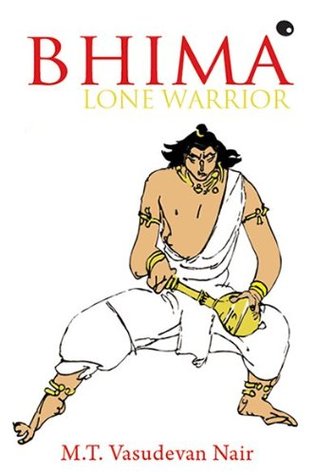Bhima Lone Warrior by M.T. Vasudevan Nair - Review by Abhishek Desikan
Bhima: Lone Warrior is the English translation of the Malayalam epic Randamoozham. If there was one regret I had after reading this book, it was that I couldn’t read it in its original form. Few authors can narrate the tale of the Mahabharata with such poise and elegance, keeping the narrative true to the original Vyasa’s (Krishna Dvaipayana) poem, and the author, known as MT, deserves all the praise he has received for it.
As the title suggests, Bhima is the central character of the book, and the author narrates the tale from his perspective - his thoughts, his anxiety, his interactions with the others, and the trials and tribulations he goes through during different phases of his life, right from his childhood. We get acquainted with a Bhima who is forever second in line, always considered dull witted, and whose accomplishments never get their due - be it praise for his strength and valor, or reward for his deeds. He is constantly used as a tool to solve a bigger purpose, and the angst and sorrow he feels when he realizes that, but refuses to speak up or go against it, to keep up his impression of being a “blockhead” , are some of the more poignant moments in the tale.
Like Yuganta, this book strips off all the divinity associated with the Mahabharata, and speaks of a tale of humans in ancient India, with very relatable human emotions - anger, greed, lust, jealousy and so forth. There’s no character who is without flaws, and that makes their stature grow. One doesn’t need to reiterate that the Mahabharata contains everything one can imagine, and MT brings out the nuances of every incident, be it big or small, in a seamless narrative. Extensive research has been done regarding the landscape, art, industry and traditions of that time, and it gives the reader an immersive experience of a glorious past.
The author’s imaginative prowess is in full display when he plays the “God of the gaps”, by drawing logical conclusions to how, many circumstances played out. Vyasa’s poem changes subject after a few moments of silence ; To interpret the sequence of events is indeed an onerous task, and I must say that he has done a commendable job. It ends the same way too, leaving it to the reader to interpret if Bhima has failed one last time or has finally been set free from his clutches.
Bhima is a one of a kind book, and a treasure of the Indian literary tradition, which will be rejoiced and celebrated for generations to come.

Originally published here.